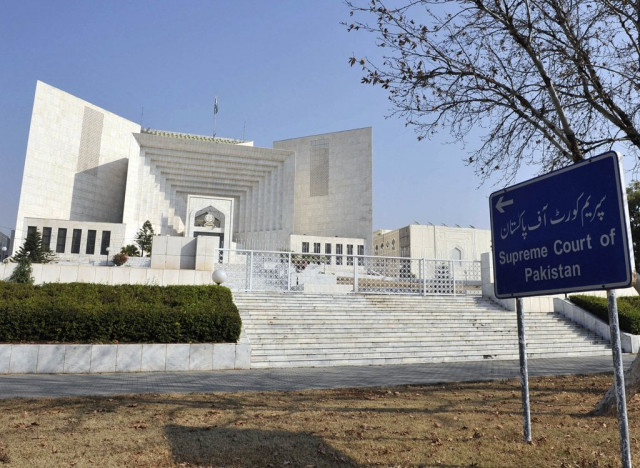SC holds PSM management responsible for its downfall
Says first officers of the entity should be sacked before the 3,700 staff was forced to resign

Chief Justice Gulzar Ahmed on Thursday observed that the management of the Pakistan Steel Mills (PSM) was responsible for its downfall saying no misdeed can be carried out without the consent of the administration.
The apex court ordered that the officers of the mega industrial unit should first be sacked before the 3,700 staff was forced to resign.
Observing that the entity was not making profit, it further directed that the payments to all the PSM employees should be stopped.
A two-member bench of the apex court led by Chief Justice Gulzar Ahmed and comprising Justice Ijazul Ahsan heard a case of PSM employees seeking promotions.
During the course of proceedings, the top court was informed that the privatisation of the PSM had entered an advanced stage.
The process of PSM's privatisation would be completed by September, Industries and Production Ministry secretary told the SC bench.
The chief justice observed that the PSM administration was responsible for the organisation’s closure.
He noted that no such entity could be ruined without the collusion of its officials and that the officers of the entity should first be sacked before the workforce was forced to resign.
He asked whether the government had initiated action against the PSM administration and maintained that both the administration and officers were a burden on the national exchequer.
The chief justice questioned why the PSM's management continued to hold their positions and added that a closed entity needs not a managing director or chief executive.
Steel Mills counsel Shahid Bajwa replied that the entire administration of the PSM had been replaced.
The chief justice inquired whether the mill would be functional with the change of administration and what 439 officers of the entity were doing when the PSM was closed.
Except Pakistan, steel mills all over the world are running in profit, the chief justice remarked.
Still the number of PSM staff, including those working at its hospital and schools, was more than its requirement, he added.
The counsel said only 439 out of 1,800 employees were working in the PSM while the mills' daily expenditure had also been reduced from Rs20 million to Rs10 million.
The administration has so far sacked 49% of the workforce and requires the labour court's permission to remove the rest, the lawyer said.
The chief justice said the apex court would give the permission in this regard but first the officers should be removed. He observed that every institution of the country was functioning in similar conditions. Every official is concerned about their own interests and not about the country, he said.
The PSM counsel stated that the employees of the industrial unit were ready to work.
The chief justice remarked that some of the PSM employees had not worked for a single day since recruitment to retirement and asked who would repay the mill's debt of Rs212 billion.
Justice Ahsan said the mill, which was once the backbone of the country's economy, was closed but the employees were demanding promotions.
The additional attorney general informed the court that ministers for planning and privatisation could not attend the proceedings as they were out of the city while the minister for industries and production was in self-isolation due to Covid-19.
The chief justice said the court would decide the case after hearing the federal ministers.
The court ordered the ministers for planning and privatisation to appear before it on February 9 and adjourned the case.
The government had initially decided to lay off 4,500 employees out of 9,500 with each employee receiving an amount ranging from Rs2 million to Rs3 million. The total dues to be paid has been estimated at around Rs10 billion.
With input from APP



















COMMENTS
Comments are moderated and generally will be posted if they are on-topic and not abusive.
For more information, please see our Comments FAQ